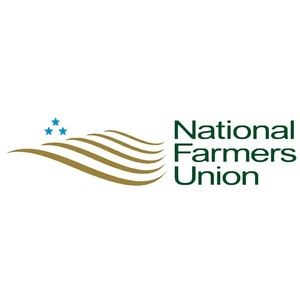NFU: EPA's REGS rule could limit mid-level ethanol blends

April 22, 2019
BY Erin Krueger
National Farmers Union President Roger Johnson sent a letter to U.S. EPA Administrator Andrew Wheeler on April 17 expressing concern that the agency’s proposed Renewables Enhancement and Growth Support (REGS) rule will make it harder for retailers to sell higher level blends of ethanol.
The EPA released its proposed REGS rule in October 2016. The public comment period on the proposal closed in February 2017. The agency recently announced plans to reopen a 15-day comment period on one aspect of the proposal regarding the public release of data related to small refinery exemption (SRE) applications. The rulemaking has been pending for more than two years and the EPA has not disclosed when a final rule might be issued.
In the letter, Johnson explains that the NFU “is concerned with any EPA action that would expressly prohibit the use of mid-level ethanol blends in non-flexible fuel vehicles (FFVs) or otherwise restrict use of ethanol’s ‘clean octane’ in the U.S. gasoline market. While we appreciate and support EPA’s efforts to provide for year-round sales of E15, we are disappointed that EPA has taken a limited approach in its E15 RVP Proposal and again urge the EPA to revise its ‘substantially similar’ determination to include mid-level blends of ethanol.”
Johnson also noted that higher blends of ethanol are key to providing relief to U.S. farmers while also providing cleaner air and higher octane. “Although we will be submitting more detailed comments on the E15 RVP Proposal, we believe, rather than expend time and resources on issues that do not appear to be actually aimed at improving the Renewable Fuel Standard (RFS) program (i.e., limits on RIN holdings and purchases), and potentially delay actions on E15, EPA should focus on helping facilitate higher ethanol blends and increased renewable fuel use,” he wrote.
Advertisement
According to NFU, its concerns stem from the EPA’s interpretation of the “substantially similar” clause of the Clean Air Act, which prohibits the sale of any fuel or fuel additive that is “not substantially similar” to fuels and fuel additives used in the certification of new vehicles. NFU argues that since E10 became the nation’s certification fuel in 2017, higher level blends like E15 and E30 are substantially similar. However, NFU points out that within its proposed rule EPA has limited its “substantially similar” interpretation to only an E15 blend, which NFU said makes the prospects of using higher level blends of ethanol harder to achieve.
“Unfortunately, EPA’s substantially similar determination is limited to E15,” Johnson wrote “While we do not necessarily disagree with EPA’s interpretations that would allow for E15 year-round, we believe the statute clearly allows for higher ethanol blends as part of the substantially similar determination based on E10 certification fuel. Indeed, higher ethanol blends would further reduce emissions and provide similar or better engine and vehicle performance.”
Johnson closes the letter by requesting the EPA clarify the CCA’s “’substantially similar’ provisions for gasoline no longer require a cop on ethanol or, at a minimum, do not preclude such a determination in its final E15 rule to additional revisions.”
Advertisement
Related Stories
CountryMark on July 22 celebrated the completion of more than $100 million in upgrades at its refinery in Indiana, including those related to soybean oil storage. The facility produces renewable diesel via coprocessing technology.
ATOBA Energy and Air Moana are partnering to implement scalable solutions for the supply of SAF. The collaboration aims to ensure long-term SAF availability while supporting local initiatives to develop sustainable fuel production in Tahiti.
While final IRS guidance is still pending, the foundation of the 45Z program is well defined. Clean fuel producers should no longer be waiting; they can now move forward with critical planning and preparation, according to EcoEngineers.
Neste Corp. on July 24 released second quarter results, reporting record quarterly renewable product sales volumes despite weaker margins. SAF sales were up nearly 80% when compared to the first quarter of 2025.
Valero Energy Corp. on July 24 released second quarter results, reporting a profitable three-month period for its ethanol segment. The renewable diesel segment posted a loss, but the company’s new sustainable aviation fuel (SAF) unit operated well.
Upcoming Events










